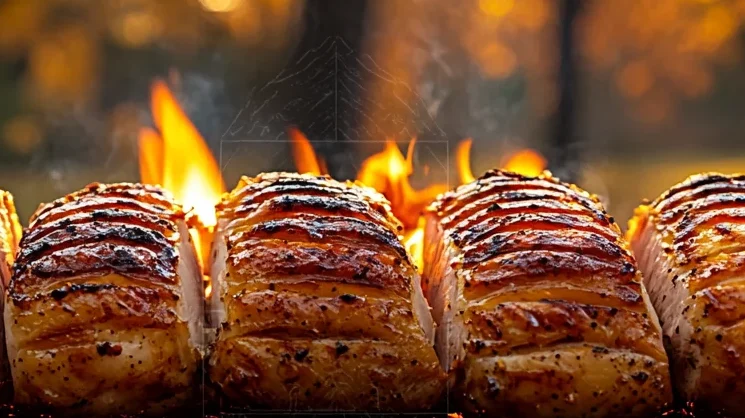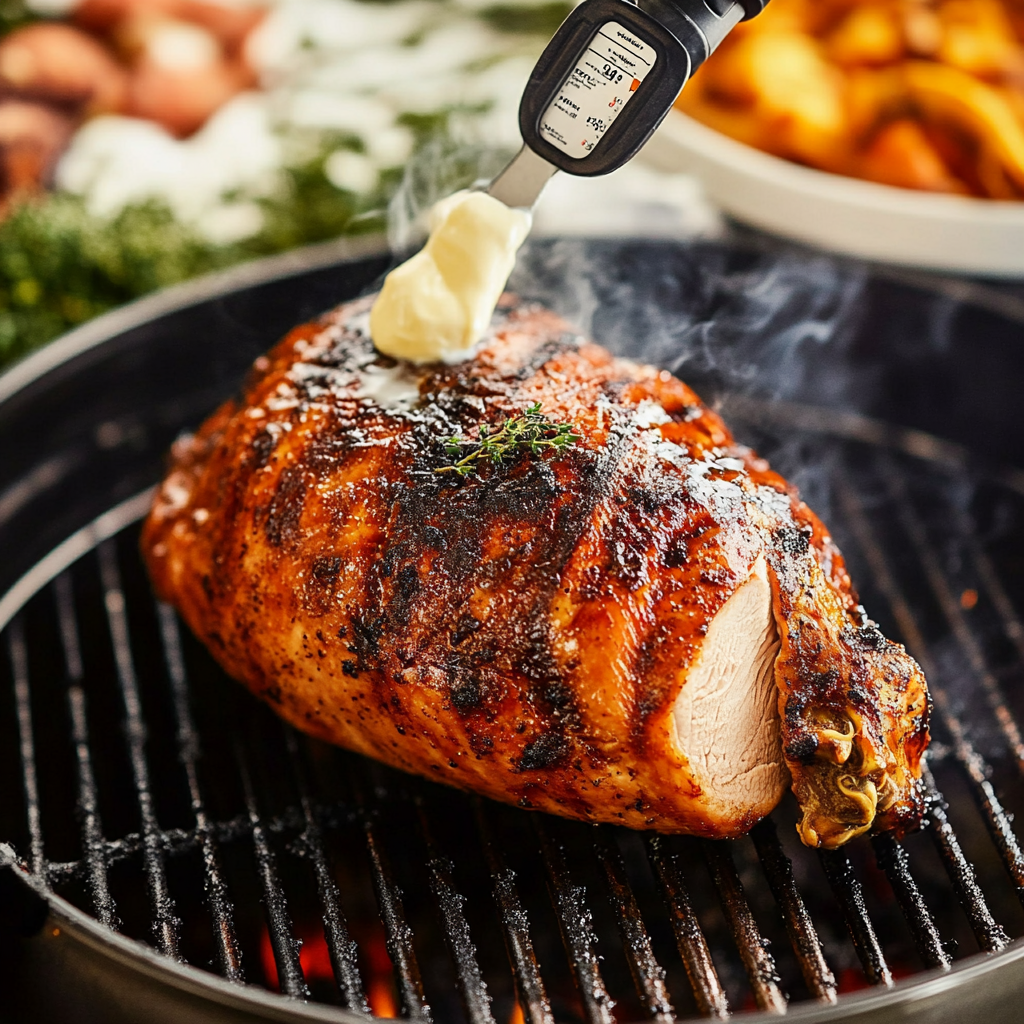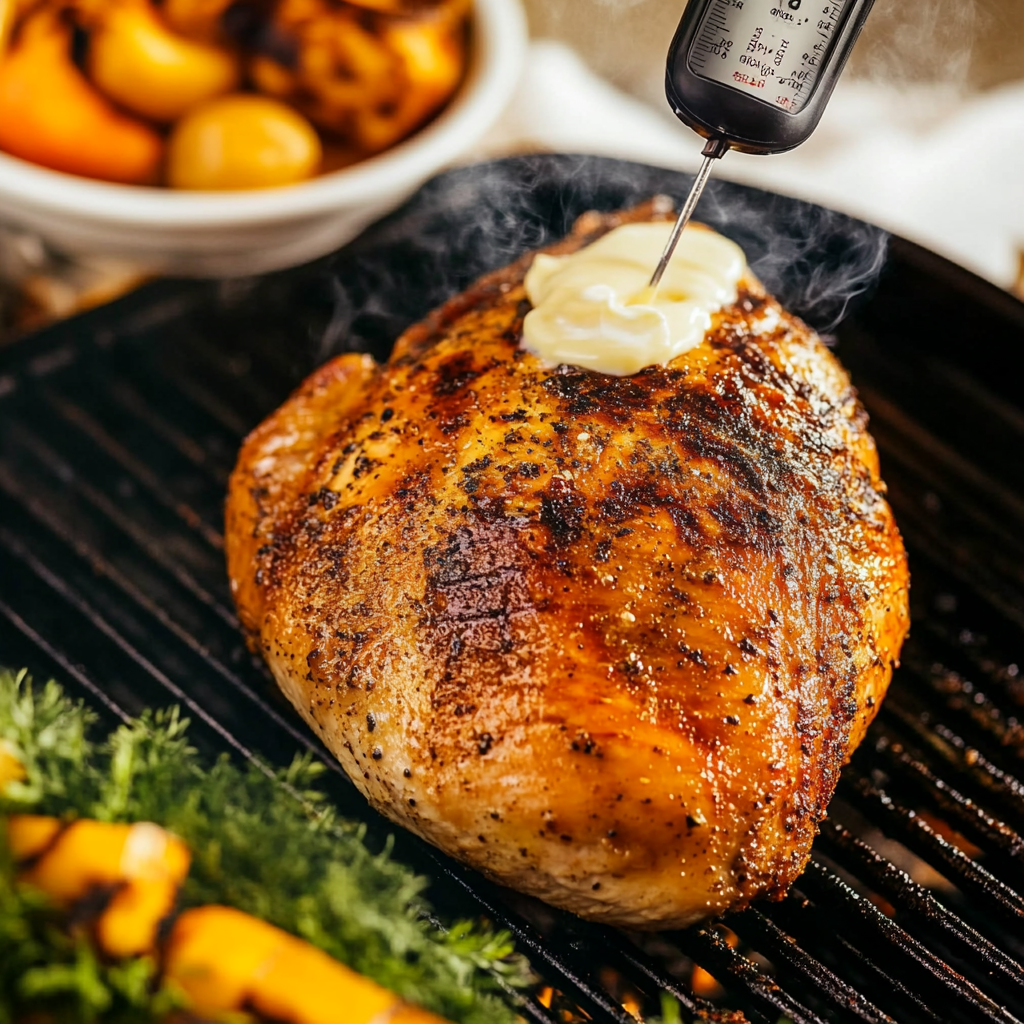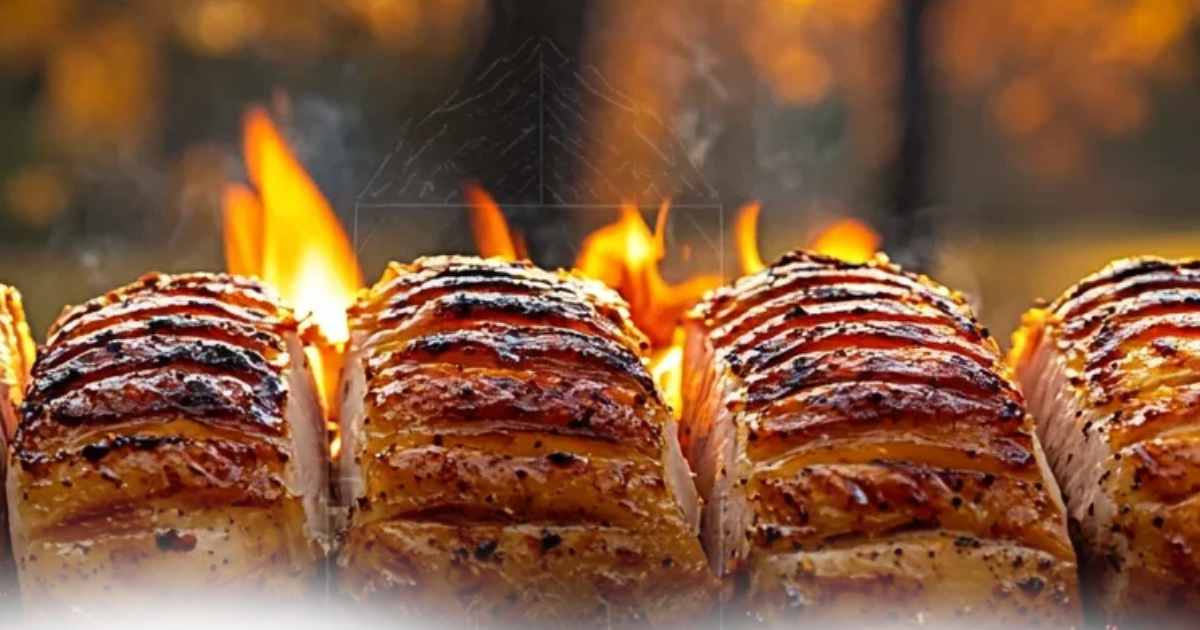Grilling chicken might seem straightforward, but achieving that tender, juicy, and flavorful perfection takes more than just tossing meat on the grill. From choosing the right cuts to mastering cooking techniques, what is the secret to grilling chicken lies in careful preparation and attention to detail. This guide will unravel everything you need to know about grilling chicken, step by step, ensuring every bite is a delight.

Table of contents
Preparation for Success
Choosing the Right Chicken Cuts
Before you even light up the grill, think about what kind of chicken you’ll cook. Each cut has its unique texture and cooking needs. Bone-in thighs retain moisture better, making them ideal for juicy results, while boneless breasts cook faster and soak up marinades effortlessly. Skin-on chicken offers that crispy, golden texture everyone loves, while skinless is perfect for lighter meals. Whichever cut you choose, ensure it’s fresh and evenly portioned for uniform grilling.
Marinades vs. Dry Rubs
The age-old debate: to marinate or to rub? Marinades are excellent for infusing flavor deep into the meat. A blend of olive oil, lemon juice, garlic, and herbs is a classic choice, but don’t be afraid to experiment with soy sauce, yogurt, or even beer. On the other hand, dry rubs work magic on the exterior. A mix of smoked paprika, brown sugar, salt, and pepper can transform your chicken into a flavorful masterpiece. The choice boils down to personal preference, but combining the two can give you the best of both worlds.
Setting Up Your Grill
Getting your grill ready is half the battle. Start by preheating it for at least 10–15 minutes to achieve a consistent cooking surface. Clean the grates with a brush to prevent sticking, then lightly oil them to create a non-stick barrier. For charcoal grills, arrange the coals to create zones of direct and indirect heat. Gas grills allow easier temperature control but still require proper setup to ensure even cooking.
Essential Tools for Grilling Chicken
A few tools can make your grilling game much smoother. Invest in long-handled tongs to handle chicken without getting too close to the heat. A meat thermometer is non-negotiable for checking internal temperatures—165°F (74°C) is the sweet spot for perfectly cooked chicken. Additionally, a basting brush, a sturdy spatula, and a drip pan for catching fat drippings will make your life easier. Don’t forget to have a plate ready to transfer cooked chicken, keeping raw and cooked items separate for food safety.
For chicken recipes that highlight the versatility of lemon, try Lemon Pepper Grilled Chicken, which is perfect for summer cookouts.
The Grilling Process
Direct vs. Indirect Heat Explained
Understanding how to use direct and indirect heat is one of the most crucial steps to mastering grilling. Direct heat is perfect for quickly searing the outside of chicken pieces, giving them those beautiful grill marks. It’s best suited for smaller cuts like wings or drumsticks that cook quickly.
On the other hand, indirect heat is the secret weapon for larger or bone-in pieces. By moving chicken to the cooler side of the grill, you allow it to cook slowly and evenly without burning the exterior. For the ultimate results, use a combination of both: start with direct heat to lock in juices, then shift to indirect heat to finish cooking thoroughly.
The Art of Timing: Avoiding Overcooking
Timing is everything when grilling chicken. Overcooking leads to dry, rubbery meat, while undercooking poses food safety risks. For boneless breasts, aim for 6–8 minutes per side, depending on thickness. Thighs and drumsticks need about 10–15 minutes per side. Always use a meat thermometer to check the internal temperature—it should hit 165°F (74°C) for safe consumption.

Resting the chicken after grilling is equally important. Allowing it to sit for 5–10 minutes lets the juices redistribute, ensuring every bite is tender and flavorful.
Grilling Chicken Breasts Without Drying Them Out
Chicken breasts are notorious for drying out on the grill, but there are tricks to keep them juicy. Start by pounding them to an even thickness for consistent cooking. Brining the breasts in saltwater before grilling adds moisture and enhances flavor. When grilling, cook over medium heat and flip only once. These small adjustments unlock what is the secret to grilling chicken that stays moist every time.
Managing Flare-Ups
Flare-ups can char chicken or leave it undercooked. They happen when fat drips onto the flames, causing sudden bursts of fire. To minimize this, trim excess fat and use a drip pan to catch grease. If a flare-up occurs, move the chicken to a cooler spot until the flames die down. Keeping a spray bottle of water handy can also help manage unexpected flames.
Flavoring and Finishing Touches
Basting and Glazing Techniques
Basting chicken during grilling is a game-changer. Brushing on sauces or melted butter enhances flavor and keeps the chicken moist. However, timing is key. Avoid adding sugary glazes too early, as they can burn quickly. Apply them during the last 5–10 minutes of cooking for a glossy, caramelized finish that doesn’t overpower the natural taste of the meat.
The Role of Smoke: Adding Unique Flavors
Want to take your chicken to the next level? Smoke is the answer. Adding soaked wood chips—like hickory, apple, or mesquite—infuses a smoky aroma and deep flavor into the chicken. Simply place the chips in a smoker box or wrap them in foil with holes, then set them on the grill. This step elevates your grilling game and shows you what is the secret to grilling chicken with unforgettable taste.
Seasoning After Grilling
Seasoning isn’t just for before grilling—it can make a huge difference after, too. A sprinkle of flaky sea salt or a dash of freshly ground black pepper right before serving can enhance the flavors. Herbs like parsley, cilantro, or basil can also add a refreshing touch, making your chicken even more delightful.

Pairing Chicken with Dips and Sides
The right accompaniments can transform a good grilled chicken meal into a great one. Pair your chicken with creamy dips like ranch or tzatziki for added richness. Sides like grilled vegetables, corn on the cob, or a tangy coleslaw perfectly complement the smoky, juicy chicken. These finishing touches complete the dish and emphasize what is the secret to grilling chicken everyone will rave about.
Common Mistakes and How to Avoid Them
Skipping the Preheat Step
One of the most common grilling mistakes is starting with a cold grill. This can cause chicken to stick to the grates and cook unevenly. Always preheat your grill for 10–15 minutes before placing the chicken on it. A properly heated grill not only sears the outside but also locks in juices, giving you that perfect texture.
Ignoring the Resting Period
Resting grilled chicken might seem unnecessary, but it’s a crucial step. Skipping it often leads to dry meat because the juices haven’t had time to redistribute. Once your chicken is off the grill, let it rest for about 5–10 minutes. Cover it loosely with foil to keep it warm without trapping too much steam.
Misjudging Cooking Time
Overcooking and undercooking are both grilling pitfalls that can ruin chicken. Using a meat thermometer is the best way to avoid this. Cook chicken until it reaches an internal temperature of 165°F (74°C) for safety. Don’t rely solely on appearance—sometimes grilled chicken looks done on the outside while still being undercooked inside.
Overlooking Grill Maintenance
A dirty grill can affect flavor and even cause flare-ups. Before every use, clean the grates to remove any residue from previous meals. Afterward, lightly oil the grates to keep food from sticking. Proper maintenance ensures a smoother grilling process and tastier results.
FAQs About Grilling Chicken
How Long Should Chicken Marinate Before Grilling?
Marinating chicken is a great way to infuse flavor, but timing matters. For smaller cuts like breasts and thighs, 30 minutes to 2 hours is ideal. For whole chickens, marinate for at least 4 hours or overnight for deeper flavor.
What Temperature Should My Grill Be for Chicken?
Maintaining the right temperature is key to what is the secret to grilling chicken. For direct heat, aim for medium-high heat (about 400°F/204°C). For indirect cooking, keep the grill at a lower temperature, around 350°F (177°C).
Can I Grill Frozen Chicken?
Grilling frozen chicken isn’t recommended as it leads to uneven cooking. Always thaw chicken completely before grilling to ensure even heat distribution and safe consumption.
Why Does My Chicken Stick to the Grill?
Chicken sticks to the grill when the grates aren’t clean or hot enough. To avoid this, preheat your grill properly and oil the grates lightly. Starting with a clean surface is essential for perfect grilled chicken.
For more delicious recipes, check out this guide to Lemon Pepper Grilled Chicken on Zenarecipes!
Pro Tips for Exceptional Grilled Chicken
Using Thermometers for Accuracy
One of the most reliable ways to ensure perfectly grilled chicken is by using a meat thermometer. Chicken needs to reach an internal temperature of 165°F (74°C) to be safe to eat. This simple tool removes all the guesswork, giving you confidence that your chicken is both juicy and thoroughly cooked. Insert the thermometer into the thickest part of the meat without touching the bone for the most accurate reading.
Experimenting with Global Flavors
If you’re wondering, what is the secret to grilling chicken that stands out, the answer might lie in global flavors. From smoky Tex-Mex spices to tangy Middle Eastern marinades like yogurt and za’atar, there’s no end to the ways you can flavor chicken. Try an Asian-inspired soy-ginger glaze or a spicy Peruvian rub with paprika and lime. Exploring different cuisines can take your grilling to the next level.
Layering Flavors Strategically
Great grilled chicken isn’t just about one flavor—it’s about layers. Start with a marinade to build a base, use a dry rub to enhance the crust, and finish with a glaze for a touch of sweetness or shine. This layered approach creates depth in every bite, answering the question of what is the secret to grilling chicken everyone will rave about.

